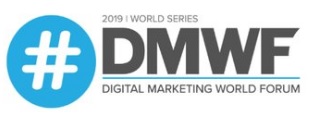
You’ve heard of the concept of ‘impostor syndrome’ – but does that feeling still pervade when you get to the highest echelons of your profession?
According to a new study from Deloitte, CMOs periodically suffer from a crisis of confidence – although the good news is that the C-suite has plenty of faith in their abilities.
The report, which surveyed 575 C-suite executives at Fortune 500 companies and as reported by Harvard Business Review, found chief marketers were uncertain across a variety of fields. Only a third (32%) of CMOs polled said they were confident in their abilities to initiate collaborative efforts and establish an understanding of the customer. The number drops to 27% when it comes to that old bugaboo, demonstrating financial impact of marketing activities.
Yet CMOs should not be overly concerned. For each metric captured, almost half of CEOs polled said their CMOs were ‘highly effective’, while CIOs and CTOs felt a similar kinship, particularly around CMOs’ customer knowledge.
In terms of those who are less enamoured, it may not surprise that chief sales officers (CSOs) are top of the list. The research notes that in ‘nearly all competencies’ CSO ratings of CMOs were well below the rest, citing a lack of ability to demonstrate financial impact and to persuade others to support their initiatives.
While this could be seen as two cats trying to share the same litter tray, one area where all stakeholders were agreed was around cooperation. “The onus to initiate such cooperation is on CMOs,” the researchers note. “They should invite C-suite colleagues to co-own key initiatives that are of shared interest and that leverage the CMO’s unique customer insight. This can both foster buy-in and avoid taking colleagues by surprise.”
When it comes to helping CMOs find and own their seat on the board, advice varies. Martyn Etherington, CMO of database and analytics provider Teradata, noted in July the importance of building up brand equity as a subject dear to the CEO and CFO’s heart alike. “Brand equity is dynamic and changes over time, [and] marketing executives must be thinking about ways this fluidity impacts their data models,” Etherington wrote.
“For the CMO, the challenge is not to wrestle with and compound these complexities, but rather to simplify and reduce them to deliver accurate and timely answers – insights that directly impact the health of the business.”
James Fletcher, chief executive and principal consultant at consultancy JTF Marketing, saw it a little differently, in a piece for MarketingTech back in January. “Traditional marketing is hard to judge on a commercial scale,” Fletcher noted. “You might spend X which generates Y resulting in Z amount of new customers, but the real value for CMOs is understanding and proving the links between these figures. [If] you want the CEO’s trust, marketers need to be able to demonstrate the impact of marketing on a commercial level.”
 Interested in hearing leading global brands discuss subjects like this in person?
Interested in hearing leading global brands discuss subjects like this in person?
Find out more about Digital Marketing World Forum (#DMWF) Europe, London, North America, and Singapore.





